Comment on this article
First Person
New grads—and one dad—reflect on Yale and beyond.
July/August 2012
by Cathy Shufro
Photographs by Mark Ostow
Elizabeth Herman
Boston, Massachusetts
PhD, History
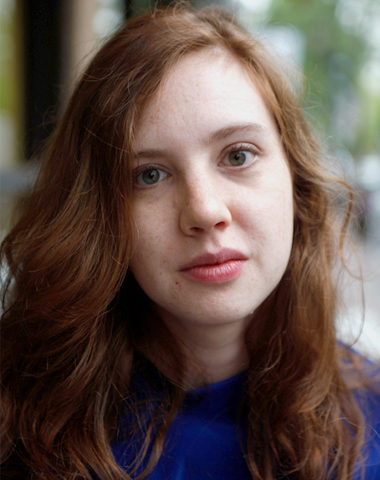
Was graduate school what you’d expected?
No, not at all. When I came here, I was 22, 23, right out of college. I didn’t really know what I wanted, so I thought, “Oh, I’ll go to graduate school. It’s just like college all over again.” When I got here I realized there’s such a depth of professional training.
How do you mean?
It’s grant writing, and article writing, and engaging with other historians in the field now. There are a lot of people currently and before you who have been highly trained for a specific career—past and present professional historians. As much as you’re learning historical knowledge, you’re also learning how to be one of them.
What’s next?
I’m going to be teaching history and English in a prep school.
Tell me why you made this choice.
I have many, many friends who are wonderful researchers, and I respect them, and I think what they do is wonderful. I discovered over the course of the past few years that I hate research, and I love teaching. So, for me, this is the perfect way to go.

Hyeon Kim
Seoul, Korea
father of Young Kim, Berkeley College, Chinese literature
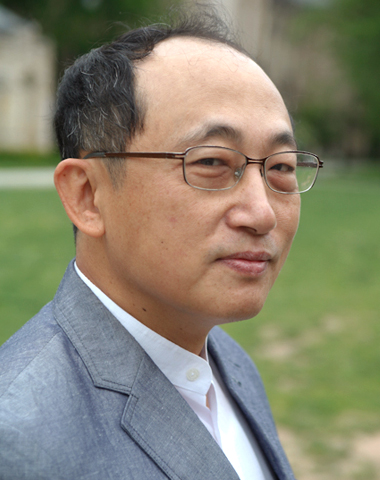
How did your daughter come to choose an American university?
Entering university is a very, very hard thing for Korean high school students: all Korean high school education is focused on how to enter a good university. I didn’t like it. And my daughter also didn’t like it. So I [allowed] my daughter not to have to go to a good university in Korea. I encouraged her to do what she really liked to, and at that time she was very deeply into drama. She was a member of the drama club of her high school, an English drama club. She did a very important role in Fame, and [acted in] Grease.
During the activity in drama club, she was getting interested in American culture and the life of American students. And she made good progress in English, and so we encouraged her to go to university in the United States.
Did your daughter become Americanized?
I don’t think so. As much as she saw the good things in America, she also saw many other things. The most important thing is she is aware of the diversity of many different kinds of cultures.

James Sobczak
Toledo, Ohio
MArch, School of Architecture
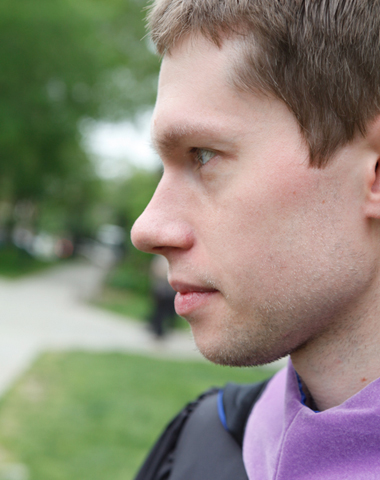
How did you get interested in architecture?
Pretty generic story: as a kid, playing with LEGOs in the basement and just building things. And eventually, in high school, taking art classes and engineering classes.
Your parents made you play with your LEGOs in the basement?
Actually, that was where we had the most space. In order to make my huge towns, my bedroom wouldn’t cut it.
How do you want to use your skills as an architect?
Ideally, I would like to work for a few years, get licensed—because that process takes a while—and possibly come back for a doctoral program. Teaching is the eventual goal, but in the meantime, setting up a small practice. Smaller to medium-scale projects: something the size of houses or bigger, but not quite urban planning. Just because at that scale you can really get a feel for the building and not lose too much control to other forces, which happens if you have [for example] huge science complexes.
What do you think needs to change in American architecture?
It’s getting better. In recent decades there has been a push to make sustainable design not just a buzzword, a way for developers to sell their projects. Now it’s becoming an endemic part of building. You build sustainably; it’s just how you have to practice.
Does that mean smaller?
Not necessarily smaller, but smarter.

Jonathan Holbrook
Dunkirk, Maryland
Calhoun College, Russian and Eastern European studies
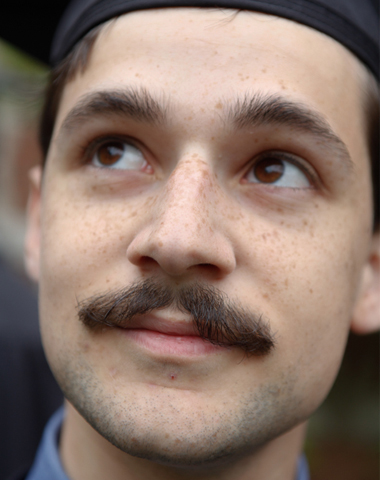
How did you get interested in things Slavic?
My brother came here two years before I did, and he really liked the Czech professor [Karen von Kunes]. She convinced me that Eastern Europe was an important and interesting area to study.
What’s next?
In the fall I am going to be headed for Harvard Law School. Most of my undergraduate studies have been focused on development, recent history, and politics in the region. Now I’ll be focusing on the law side of the equation.
In what way did you change the most while you were here?
Developing a sense of community. I came from being homeschooled beforehand, and being here, it was continuing to work on my own, but working in teams. I was captain of the varsity fencing team. I learned to work with teammates, collaborators, my suitemates.
Why are you carrying a white baton?
That’s for student marshals, the top two students in each college.
It looks like a cheerleader’s baton.
Just about. Or a curtain rod.

Jeff Gurrola
Ventura, California
JD, Law School
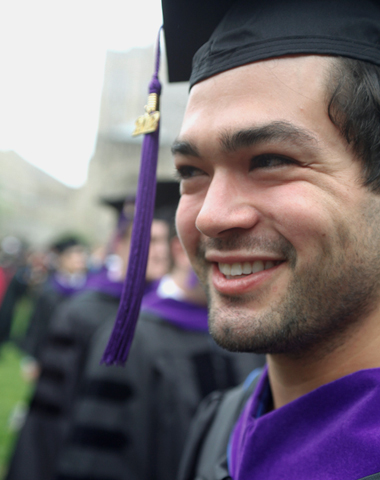
How did you get interested in the law?
I decided at 12 years old that I was going to go to law school, and then sort of stuck with it—a self-fulfilling prophecy.
What do you think law school represented to you when you were 12?
Neither of my parents went to college, so it was doing something different, doing the best that I could do. I had no idea what I was getting myself into.
What appeals to you now about law?
The practice. The entire concept of representing someone, of advocacy, of being not just the mouthpiece for somebody in a very complex legal system, but also their man in the ring.
What surprised you about Yale Law School?
[Coming from LA], I had to realize that people just have a different way of approaching you here, and that people actually are really nice, but you just have to crack their shell a little more. Academically speaking, I had always thought of law school as almost a vocational school, training. I was surprised and really pleased by how academic it was—how much the professors cared not just about the practice of law, but about the theory of law and law’s place in society.

Petter Risøe
Oslo, Norway
MPH, School of Public Health
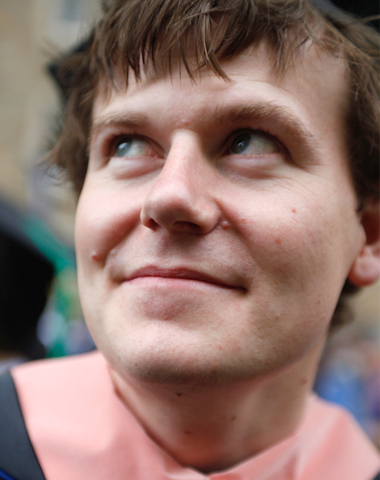
Was Yale as you expected?
I had a very good time. When I picked it, I liked the fact that it’s so much smaller than the other public health schools. I feel like I know a big proportion of the students at the school, and faculty, and you bump into each other all the time, which is nice.
How did you change while you were here?
I’m at a completely different level in terms of research skills, in biostatistics and epidemiology. I got motivated to learn more pubic health. I got a lot of friends. I switched teams! I used to be Harvard, and now I’m definitely Yale. It’s always going to be Yale all the way.

Charisse Orme
Mission Viejo, California
MD, School of Medicine
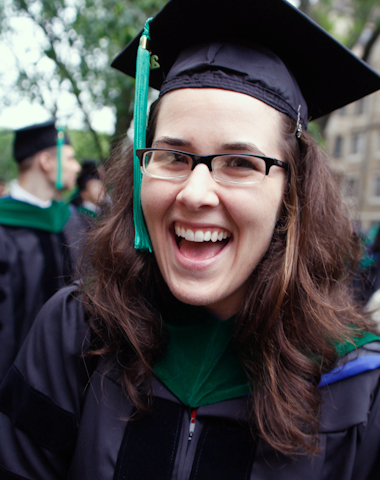
You’re getting your MD?
MD, PhD.
Wow.
Eight years later! Actually, I got my PhD last year.
What do you plan to do next?
I am staying here for my preliminary year internal medicine residency, and then I am going to NYU for a dermatology residency.
What drew you to dermatology?
Gosh, I love it. It’s such an accessible organ—it’s amazing—and this makes it easy to study. I want to have a lab. I’m going to study autoimmune diseases of the skin.
Why are you interested in autoimmune diseases?
Those are the patients that inspire me the most when I walk into the room. The drugs that we use to treat them are so blunt-force that we have to find better ways to help them.
People tend to be kind of prejudiced against people going to dermatology. They think it’s just lifestyle. But dermatology is actually a very fascinating, complicated field, and very rewarding.
Why?
Everybody sees the skin, and if you have a problem with it, it affects both your health as well as your interaction with the world. That has a huge effect on a person’s self-esteem, their quality of life. So if you can do something to help them, you can make a huge difference in their life, in every way.

Taylor Vaughn Lasley
Los Angeles, California
Berkeley College, American Studies with a concentration in film and theater
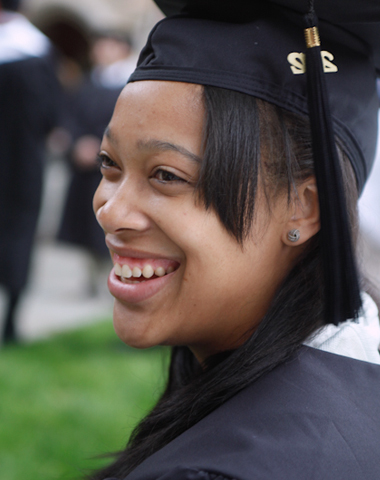
Was there a particular professor that inspired you?
Elihu Rubin ’99. He taught a course called Urban Life and Landscape. I think it was the best possible introduction into what it meant to be undertaking a liberal arts education. This sort of class, based purely on student participation, as opposed to the teacher lecturing, was eye-opening for me. We read a book I’ll never forget, called Sidewalk, which is an exposé of panhandling in New York City
Do you have plans for next year?
Yes, well, for the next month. I have been actually down in Atlanta since the end of reading week, working on a major motion picture called Identity Theft. It’s a comedy that’s directed by a Yale alum, Seth Gordon ’99. I’m a production assistant.
How have you changed since you came here?
I feel, although this sounds cliché, I am leaving Yale with a very good sense of who I am.
And who are you?
My friend asked me in February, “Would you rather have fun, or change the world?” And I said, “I’m going to have fun, and in doing so, I’m going to change the world,” and that’s how I feel about who I am.

A Long Walk to the Podium
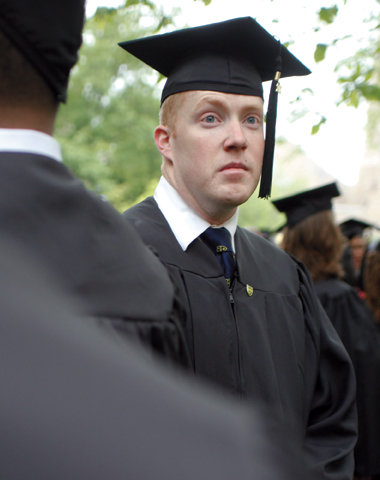
Brett Smith’s parents waited uneasily to hear their son’s first words as he recovered from a horrific car crash. “They were afraid I was only going to say cuss words,” he recalls. When people with brain injury first find the means to express their frustration, they often curse.
As it turned out, Smith’s first word after weeks of struggling to speak was “Mom.” His mother had just opened the door to welcome him home for a break from the rehab center. When she heard him speak, he recalls, “she cried for a long time.”
Smith, a Nebraska native, played football for Yale in his freshman year in 2002. In January 2003, he was in an auto accident on I-95 with eight other students returning from a fraternity event in New York. Four students were killed. “I was going to follow as the fifth fatality,” he says. “But luckily I was only in a coma.” Nine years later, at age 28, Smith walked with the Class of 2012 and will officially graduate at the end of the first summer session, when he completes a final half credit.
Smith says his parents’ encouragement and his sense of humor have helped him persist during years of physical therapy. He’s still working diligently to regain full use of his right hand. “Things don’t come easily for me now,” he says. “That doesn’t mean I give up and watch TV.”
Smith had planned to follow his father into orthopedics. Now he intends to be a rehabilitation physician. He imagines his patients thinking: “‘This guy was in the same boat I am in, and look at him now.’ That will give them hope.”
At Class Day exercises, Brett Smith received the Amanda Walton Award, for an athlete who has excelled in competition or “transcended unforeseen challenges”; and the David Everett Chantler Award, for a student exemplifying “courage, strength of character and high moral purpose.” Students and their families gave Smith a standing ovation.

|










